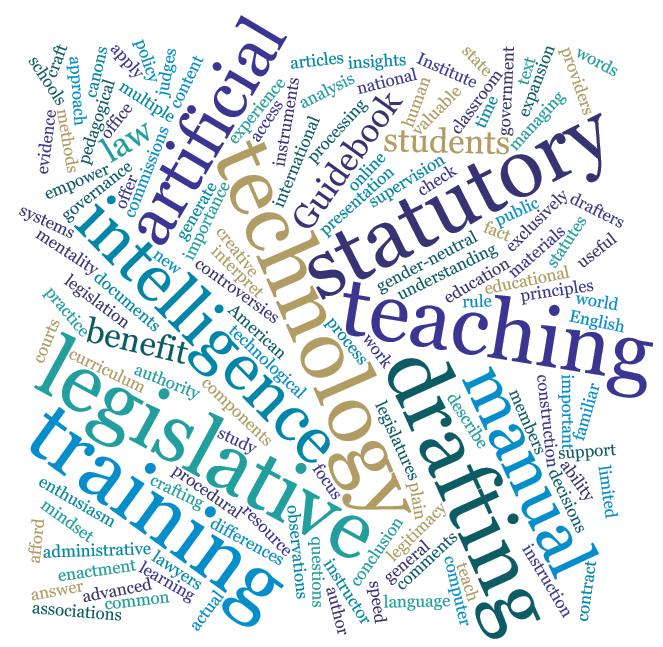Abstract
Legislative drafters play an important role in upholding the rule of law by crafting legislative instruments that promote procedural regularity—a cornerstone of governmental legitimacy. We must, therefore, be concerned about best practices in preparing legislative drafters.
This article draws upon more than 30 years of experience at The Public Law Center (Tulane University, New Orleans) in teaching law students and training legislative drafters. It identifies the components of a common curriculum and discusses differences in providers, methods, and materials for students and drafters. The article examines controversies in drafting between the academy and the practice; compares drafting texts that are widely used among students and drafters; and considers how drafting manuals serve both practical and pedagogical purposes in legislative drafting.
A survey of technology acknowledges the role of Zoom during the pandemic, recommends several useful websites, and speculates about the future of artificial intelligence in legislative drafting. A penultimate section explains why statutory construction is “off my list” of helpful subjects in legislative drafting, and the conclusion reaffirms drafting as a vital support in rule-of-law systems.

Dieses Werk steht unter der Lizenz Creative Commons Namensnennung - Nicht-kommerziell - Keine Bearbeitungen 4.0 International.
Copyright (c) 2021 Zeitschrift für Europäische Rechtslinguistik (ZERL)

